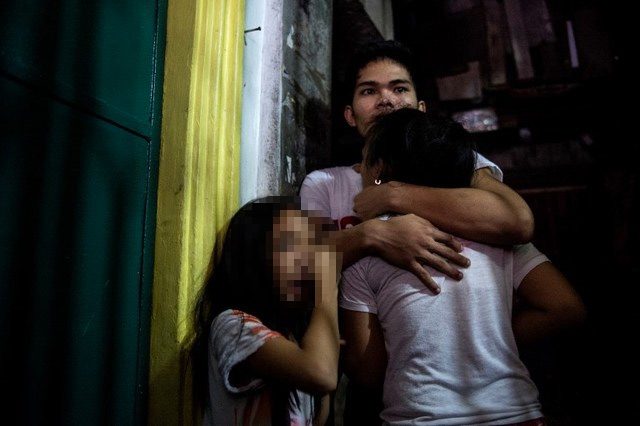SUMMARY
This is AI generated summarization, which may have errors. For context, always refer to the full article.

MANILA, Philippines – Former Philippine president Benigno Aquino III expressed concern over what would happen to a generation of Filipinos left orphaned by the current administration’s war on drugs.
“And you have to wonder about the ones you read about – the children who survived and what they’ve witnessed. What happens to them afterwards? What happens to them when they’re in their teens, early 20s?” said Aquino in an exclusive interview with Rappler’s Maria Ressa, more than a year after he stepped down from office.
He added: “What’s in store for us down the line as a country for people who might not have redress in the systems in place?”
When asked about the killings linked to the drug war, including the alleged extrajudicial killings (EJKs) funded or executed by police, Aquino instead recounted an anecdote from Colombians who happened to be friends with one of his sisters.
“These friends of theirs from Colombia said something: why are you copying what we did? The one result was producing children, victims from both sides, of extrajudicial killings who are now of age and filled with hatred, bitterness, anger and frustration,” Aquino told Rappler CEO and Executive Editor Maria Ressa.
Government estimates peg the number of drug war orphans at over 18,000.
Colombia has been witness to a decades-long war on drugs, which some – including its former president who led it – have called a failure. The country now leads efforts to overhaul global narcotics policies.
A year of silence
Aquino’s reaction was noticeably less harsh than that of many Liberal Party members, particularly those who belong to the minority in both houses of Congress.
Aquino, the former ruling party’s chairman emeritus, earlier promised to refrain from commenting on Duterte’s administration until after his first year.
His successor, President Rodrigo Duterte, won on a campaign that promised “change.” Among his key campaign promises was to eliminate illegal drugs in the country within 3 to 6 months. He promised then that the campaign would be bloody.
The deadline has since been extended until the end of his term in 2022.
Duterte’s war on drugs is popular but controversial. Critics have accused Philippine police of resorting to illegal means in the name of the drugs war.
Various human rights organizations and media entities have documented instances wherein police were found to have either executed alleged drug personalities themselves. (READ: Where the drug war began)
Cops insist the suspects “fought back (nanlaban),” making it necessary for police to shoot back. Countless cases have been documented to show that this was untrue.
Images of family members – including children – crying over the death of a relative with alleged ties to illegal drugs, have been common among poor communities, particularly in Metro Manila.
Children themselves have been unintended victims of the drug war. Danica Mae, a 5-year-old, was killed in August 2016 when unidentified gunmen targetted her grandfather in their home.
Critics said the drug war is anti-poor. – Rappler.com
Add a comment
How does this make you feel?
There are no comments yet. Add your comment to start the conversation.